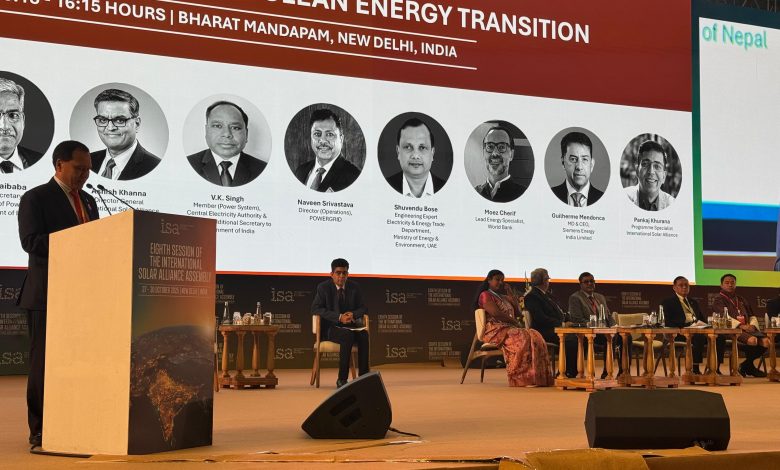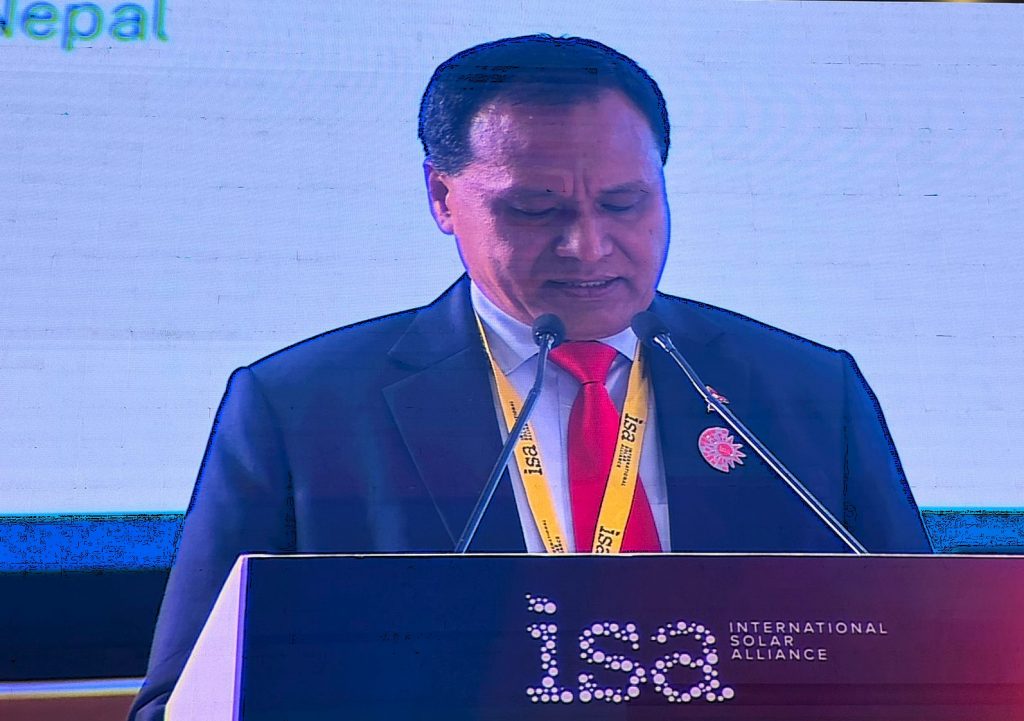Nepal Calls for Global Investment in Renewable Energy

Nepal has urged the international community to invest in its renewable energy sector, positioning the country as a potential hub for clean energy in South Asia.
Speaking as a keynote speaker at a thematic session “Envisioning Regional and Global Interconnections for Large-Scale Clean Energy Transition” in New Delhi, Energy Minister Kulman Ghising highlighted Nepal’s vast hydropower and solar resources, as well as the expanding cross-border electricity networks linking Nepal with India and Bangladesh.
Addressing discussions on the sustainable development of the country’s enormous energy potential and the roadmap for trilateral electricity trade between Nepal, India, and Bangladesh, Ghising described Nepal’s hydropower resources as crucial for building a flexible and stable regional grid, capable of supporting large-scale renewable energy integration across the region.

“Nepal’s hydropower potential, growing solar capacity, and regional grid connectivity offer a chance to create a sustainable energy future,” Ghising said.
“We invite partner nations to invest in Nepal’s renewable energy and become part of a greener, more resilient South Asia.”
With nearly 83,000 megawatts of hydropower potential and about 42,000 megawatts in pumped storage, Nepal’s clean energy resources are considered essential for balancing regional electricity demand and supporting a stable, interconnected grid.
Joint projects with India aim to deliver 15,000 megawatts of renewable energy by 2035, creating new avenues for cross-border electricity trade.
Ghising also warned that climate change poses a growing threat, noting that recurrent floods and droughts are increasingly damaging infrastructure.
He stressed that regional cooperation, transparent regulations, and open access to transmission lines are key to attracting investment and ensuring long-term sustainability.
Nepal’s push underscores its ambition not only to power its own development but to emerge as a strategic green energy exporter, contributing to South Asia’s clean energy transition and global climate goals.





Comments